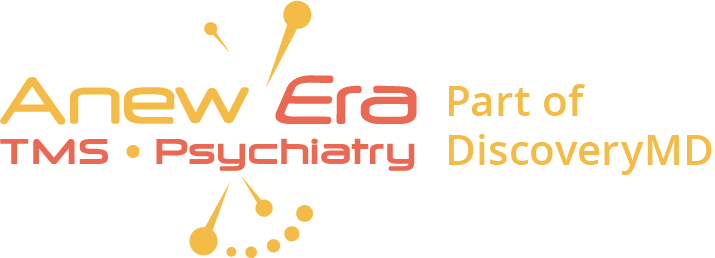TMS Depression Success Rate
These days it is pretty well understood that antidepressants are not the homerun treatment intervention for depression that was once believed. Most folks have a friend or family member who has struggled with depression, only to be put on a never-ending cycle of antidepressant trials that went nowhere. This can be very discouraging for people who would give anything just to experience joy again.
For the individuals who have medication resistant depression, meaning that they, after trialing several different antidepressants, were not able to achieve remission from their depression symptoms, transcranial magnetic stimulation (TMS) might be their ticket to relief. TMS is a promising new entry into the depression treatment arena that has been helping people across the globe reclaim mental health and well-being. Better yet, a continuous stream of clinical studies continues to provide proof of the consistent TMS depression success rate.
Why Does TMS Work and Antidepressants Don’t?
Antidepressants continue to be the first line treatment for assisting people who are battling depression. Among women ages 50-64, 25% are taking some type of antidepressant. Antidepressants can include SSRIs, SNRIs, TCAs, MAOIs and more. For the purposes of this blog, SSRIs, the most popularly prescribed among all antidepressants, will be discussed.
SSRIs work by increasing serotonin, the happy chemical, in the brain, as well as blocking the reabsorption of it. The problem is that each individual has unique brain chemistry, DNA, and psychological make-up, meaning that antidepressants do not offer a one-size-fits-all answer for treating depression. In the majority of cases, multiple drugs must be trialed before one that improves symptoms is identified. Even so, between 30-50% of individuals seeking relief from depression using antidepressants are not helped by them.
TMS Therapy is a type of technology that, instead of using drugs to hopefully stimulate the positive brain chemicals, uses direct electrical stimulation that specifically targets the limbic system of the brain. The electro-magnetic pulses that are delivered through a coil on the scalp aim for this mood center of the brain to zero in on the brain cells that are underactive or dormant. By “waking them up,” TMS can realign brain chemistry, or reset it, so the patient begins to experience symptom relief as a result.
About TMS Therapy
TMS is a neuromodulation technique that alters nerve activity in the brain by using electromagnetic fields. Through the use of technology similar to that of an MRI, TMS produces powerful magnetic fields that are harnessed and delivered through the scalp and directed to the left dorsolateral prefrontal cortex. The induction of electric currents will then target the neurons inside the cortical layers, modulating their activity by stimulating them. This technology can result in lasting effects seen in the reduction of depression symptoms.
TMS is noninvasive, requiring no sedation, no incisions, no implantation devices, and no recovery period. TMS sessions are provided in an office setting while the patient is fully alert. During the 40-minute TMS therapy session, the patient sits comfortably and can pass the time by reading, listening to music, or watching TV. The patient will experience a repetitive tapping sensation on the scalp where the magnetic pulses are being delivered.
TMS works over the 4-6 week treatment period to ease the symptoms of depression. Patients may begin to notice improvements as soon as two weeks into treatment. They may first notice they are sleeping more soundly. Over the upcoming weeks in treatment they will begin to notice they are more mentally alert, have increased energy, and eventually experience improved mood.
Is TMS Therapy for Depression Safe?
TMS therapy has been extensively studied globally, with a large number of diverse clinical trials conducted providing ample evidence of not only the efficacy of TMS for treating medication-resistant depression, but also its safety. Some mild adverse effects associated with TMS have been reported, however these are transient in nature and resolve spontaneously as treatment continues. These side effects include mild to moderate headache, scalp tenderness, facial tingling or numbness, and lightheadedness. Generally, TMS therapy is well tolerated by patients.
Who Benefits Most From TMS Therapy?
People who have had prolonged major depression and were not able to achieve positive treatment results with antidepressants are excellent candidates for TMS treatment. TMS is not appropriate for certain individuals, however. Disqualifying conditions might include:
- Patients with implanted conductive metal or stimulators in or near the head
- Patients with cochlear implants
- Patients with aneurysm clips or coils
- Patients with vagus nerve stimulators
- Patients with implanted deep brain stimulators
- Patients with shrapnel particles in or near the head
- Patients with facial tattoos with metallic ink
Study Results Show TMS Depression Success Rate
The medical community at large is excited by the promise of TMS for treating a variety of conditions beyond major depressive disorder (MDD). In Europe, TMS is already cleared for treating Parkinson’s disease, stroke, MS, migraine, Alzheimer’s disease, epilepsy, smoking cessation, substance use disorder, anxiety disorders, and more. Here in the U.S., TMS therapy was FDA cleared in 2008 to treat MDD in medication-resistant patients.
A wide array of clinical trials supports the safety and efficacy of TMS for treating MDD, reinforcing news supporting the TMS depression success rate. A few of the studies are summarized here:
- A 2010 U.S.-based multisite sham-controlled, randomized study of 199 patients with MDD showed clinically meaningful effects, with patients having a 4.2 times chance of attaining remission from the MDD using TMS vs. sham.
- A 2010 multisite study out of Rush University Medical Center in Chicago with 301 patients demonstrated statistically significant treatment results and a low relapse rate after a six-month period.
- A multi-site observational study involving 42 clinical practice settings. Participants included 307 individuals with medication-resistant MDD received up to 6 weeks of TMS therapy. The study compared patient responses from depression evaluation tools, from baseline to end of acute phase, using the following assessment scales: the Clinician Global Impressions Severity of Illness scale; the Patient Health Questionnaire; and Inventory of Depressive Symptoms Self Report. The outcomes indicated statistically significant improvement in response and durability of remission rates after receiving TMS.
- A large study is currently underway in the U.K., sponsored by the National Health Service (NHS). The study involves 420 patients and will study the specific brain region targeting process to obtain the best long-term remission results. By pinpointing the area where the neuronic activity is reduced, TMS can deliver even more effective results.
- A 2011 consensus review pulled together numerous studies as evidence of the safety and efficacy of TMS therapy for MDD in medication-resistant depression. This meta-study analysis of more than 100 publically published clinical trials of TMS for treatment of MDD where durability of TMS treatment was reviewed. The result of this meta-analysis produced a consensus that daily left prefrontal TMS treatments show substantial clinical results for patients who are medication-resistant or intolerant to medication side effects.
- A randomized sham-controlled study with 212 participants in which the Hamilton Depression Rating Scale (HDRS) was used to assess depression rates before and after a four week TMS treatment period and a following 12 week maintenance phase. Based on the change in the HDRS results, findings showed that the patients who received TMS had clearly higher response and remission rates than the sham treatments.
- A study of 21 treatment –resistant depression patients looked at using TMS as an adjunctive treatment protocol to antidepressants. The study retained the dosage levels of the antidepressants and added TMS therapy to augment the effects of the medication. The results showed the mean Hamilton-D17 scores were reduced significantly after the TMS was added to the antidepressant treatment.
Anew Era TMS & Psychiatry Offers Expert TMS Therapy for Treating Depression
Anew Era TMS & Psychiatry is a comprehensive center providing both tradition and TMS therapy for treating depression and coexisting anxiety or trauma in South Orange County, California.
The experts at Anew Era TMS & Psychiatry actively demonstrate how the TMS depression success rate is exemplified in their patients each and every day. For more information about TMS therapy for MDD, please contact Anew Era TMS & Psychiatry today at (888) 503-1549.





